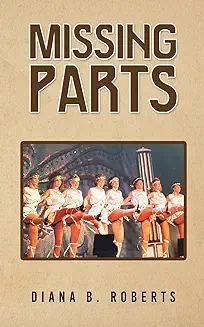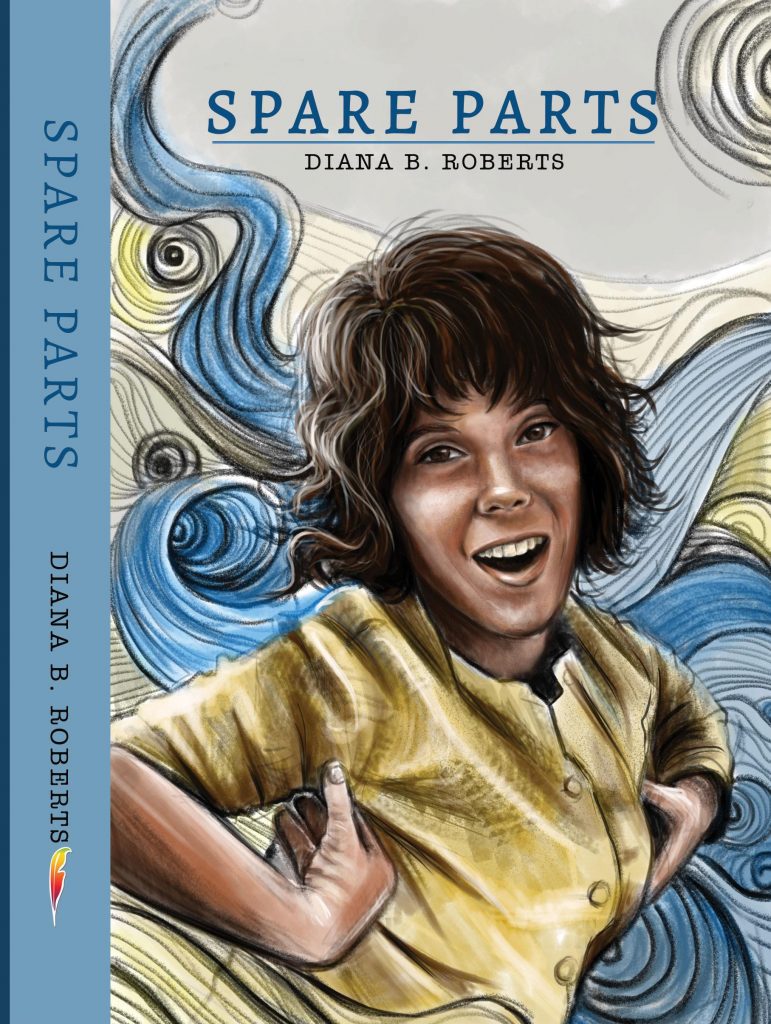Missing Parts
Missing Parts is a novel that explores the enduring power of friendship, the impact of life’s choices and the resilience of the human spirit in the face of adversity.

Spare Parts: A Rollicking Ride through the Late 60’s and 70’s (2018)
Spare Parts traces a young woman’s journey from privileged Boston debutante to committed activist in the late 1960’s to the end of the Vietnam War.
It begins when Lacey Pierce returns from the Peace Corps in Africa and falls in love with young Iowa Lawyer, Doug Pierce.
Doug has been sentenced to prison for resisting the local draft board who demanded he come home and enlist while serving the Peace Corps in Bolivia.
Doug avoids jail by becoming a Conscientious Objector. Lacey and Doug travel to Japan where Doug is the civilian lawyer for dissident American soldiers during the Vietnam War. Lacey becomes an editor for the major Japanese English paper. Soon differences erode the couple’s relationship. Returning to the States in New York, the couple enters therapy to discover the marriage has failed, not for love but for philosophical differences. Lacey is adventurous but not a radical. Doug wishes to make real change in America as a true radical.
When Lacey goes home to Boston she visits her father’s grave, she realizes her male liaisons have been false attempts to find the father she lost. She returns to New York ready to begin a new life as a writer.
Farrago: A Memoir of Markie and Me (2013)
Farrago, from the Latin farragin, is an old English word that means a confused mixture. The memoir shares the story of the relationship between the author and her mother, Markie, which is just that—a farrago, containing neither positive nor negative judgment.
Markie Byron was eighty-five years old when she passed away—a long life for anyone, but particularly for a women who had been institutionalized for mental illness six times, beginning at age sixteen, and who had been unwillingly subjected to thirty-six shock treatments. Through mental and physical illness, on her death bed and throughout her life, she maintained a personal sense of style reminiscent of her wealthy, bygone youth. In the end she went quietly, politely, and silently to the other side, leaving her children to wonder what her life, and their lives, might have been like if she had been with them all along.
A victim of mental illness and the wounding loss of her family’s place in society, Markie became incapable of raising her three children. For many years the lingering effects of the brief years she spent with Markie created a shadow over Diana’s life, a kind of aura of both the presence and absence of her mother.
Finally healed after a lifetime of uncertainty and ready to shed light on the needs of survivors of parental mental illness, the author details life with—and without—her mother.


